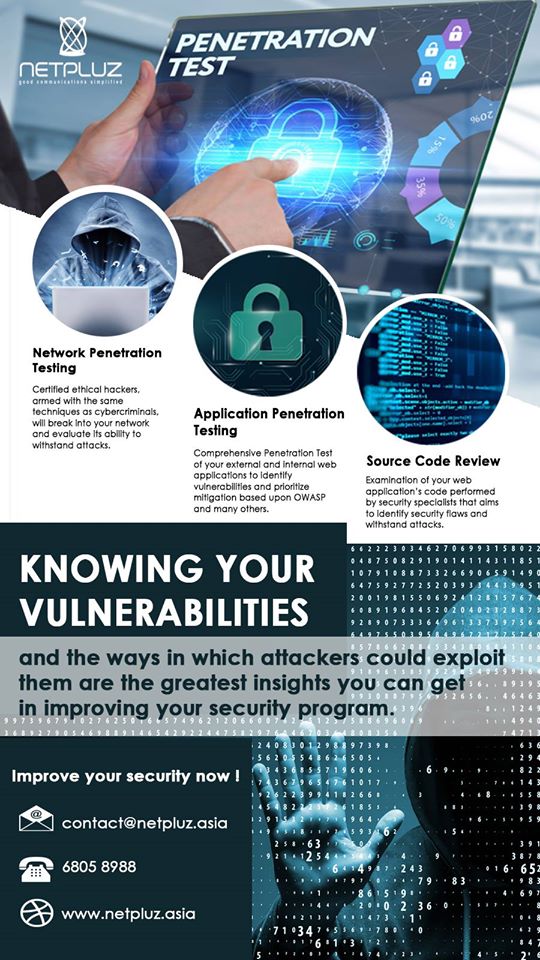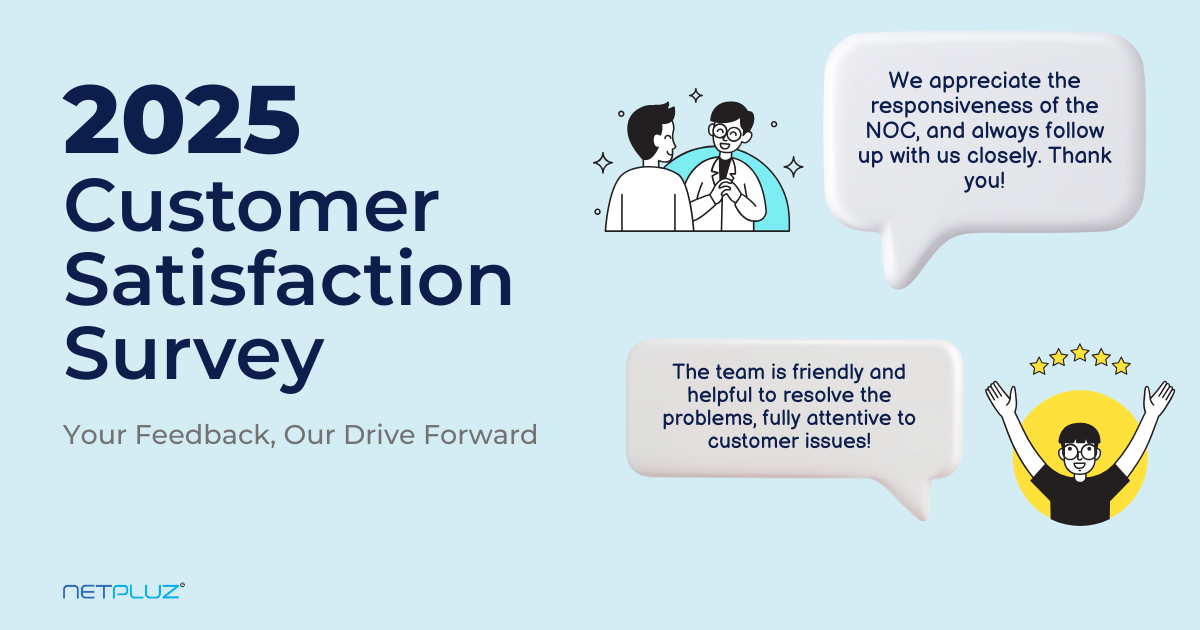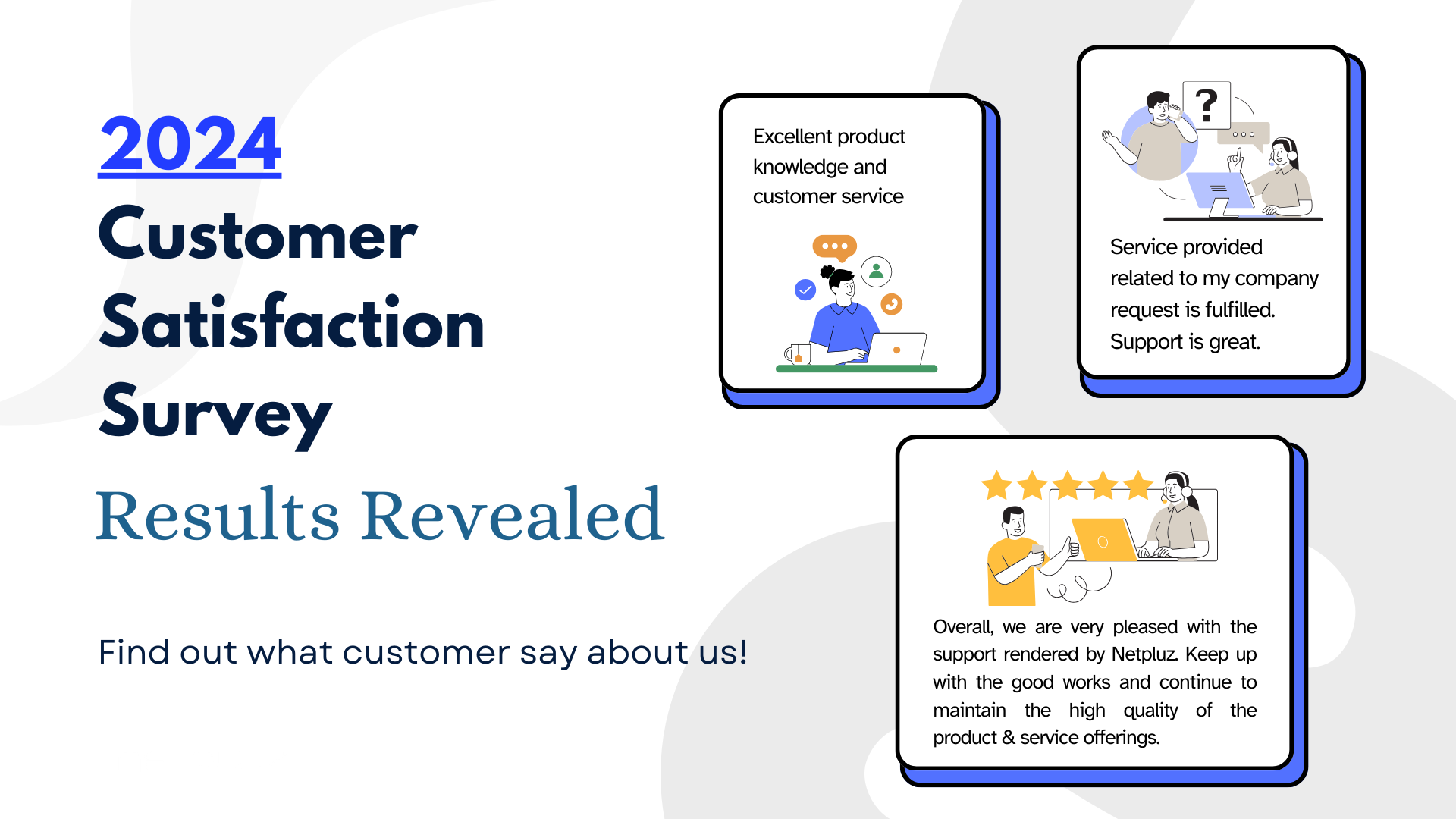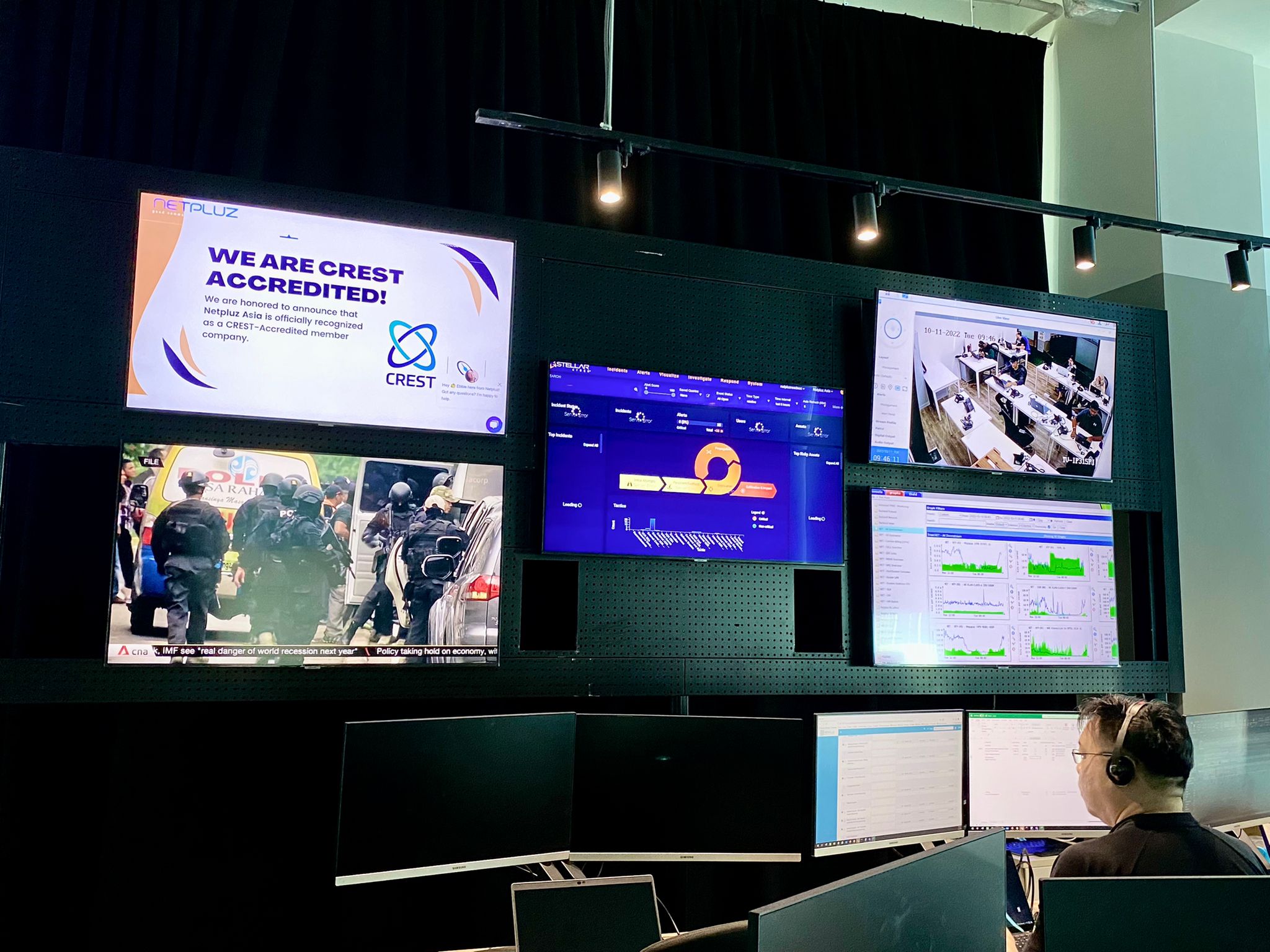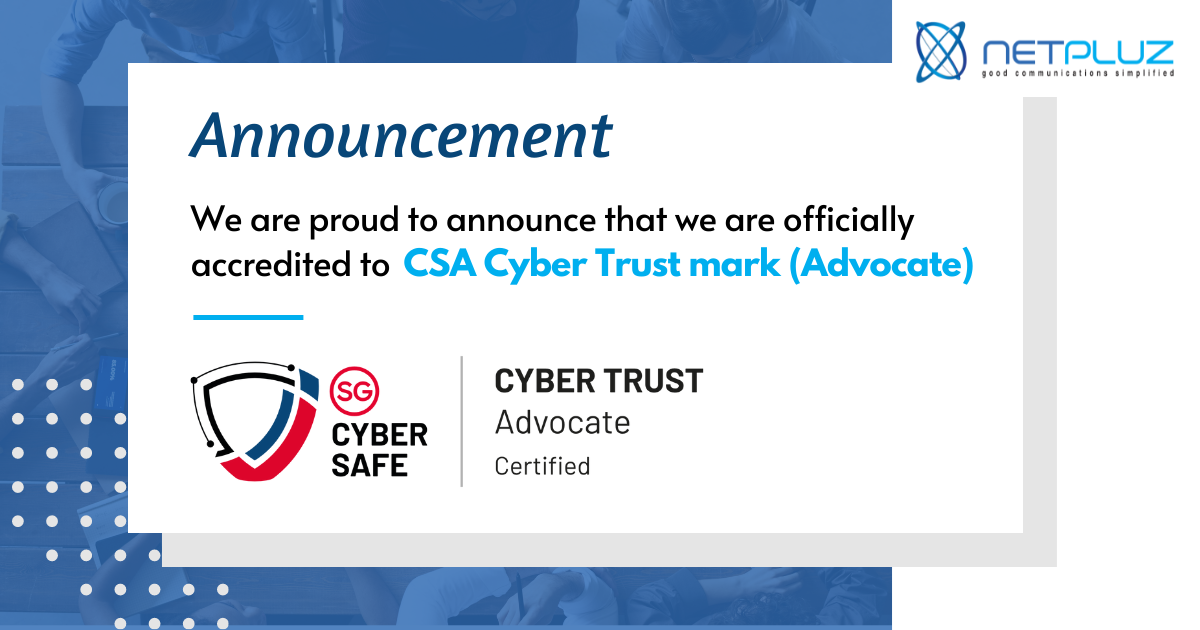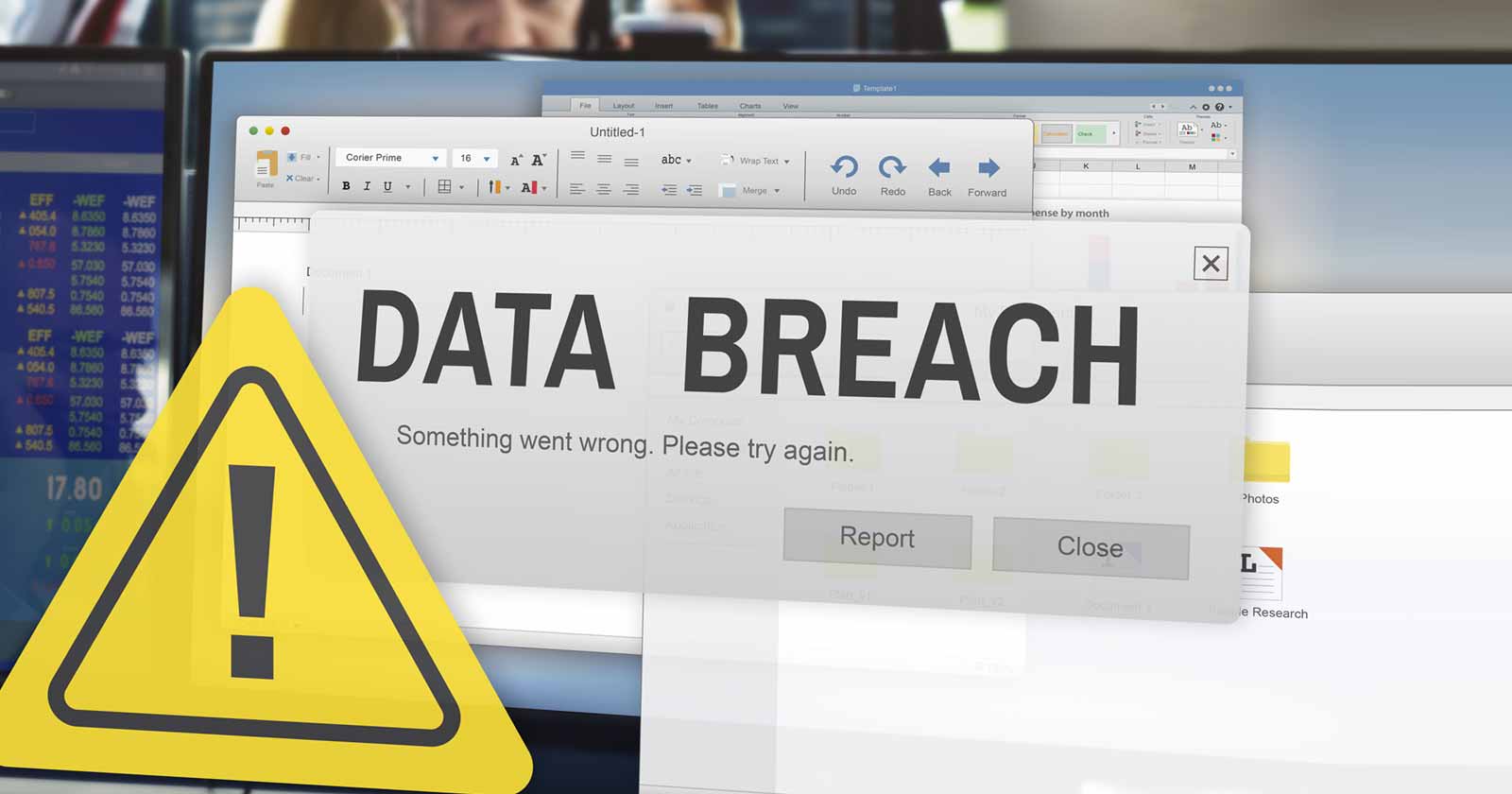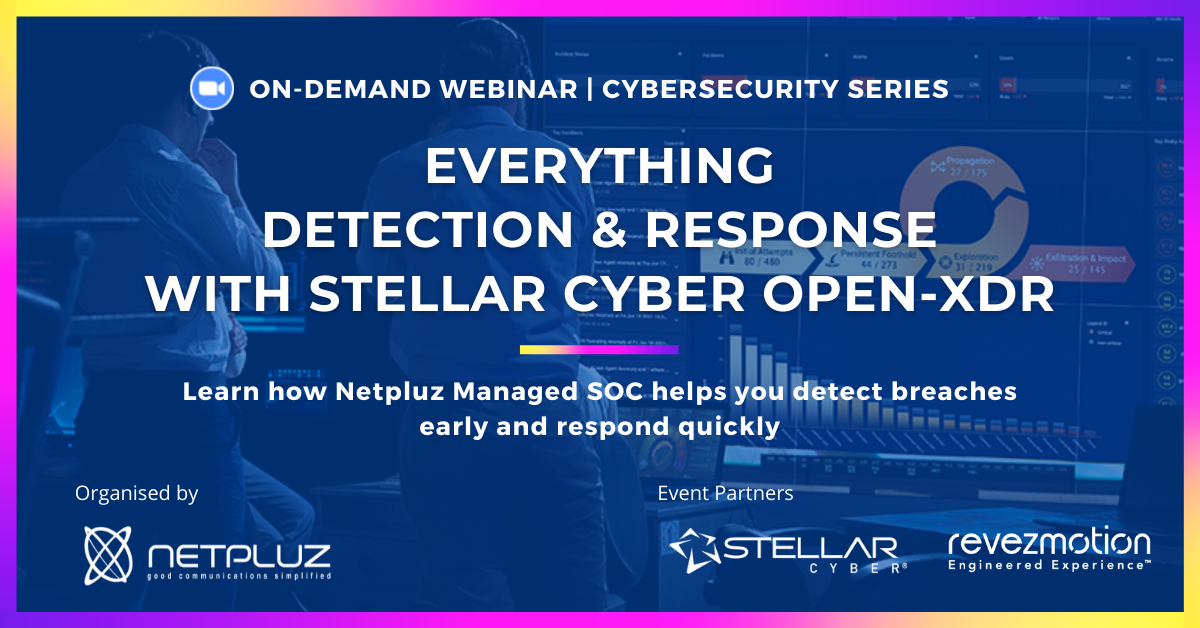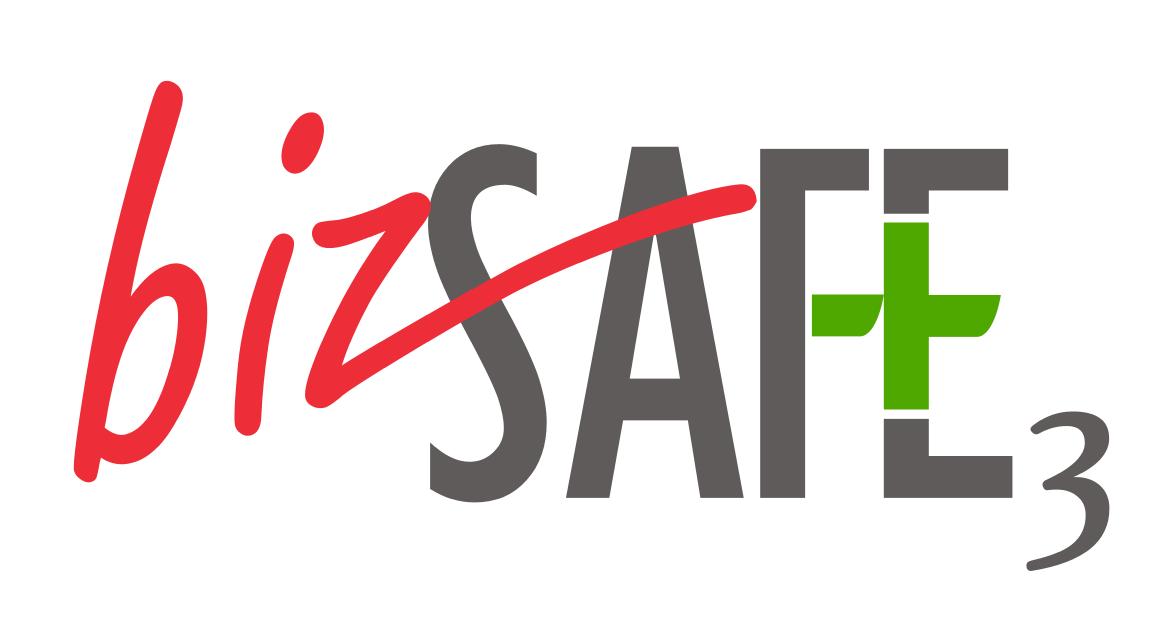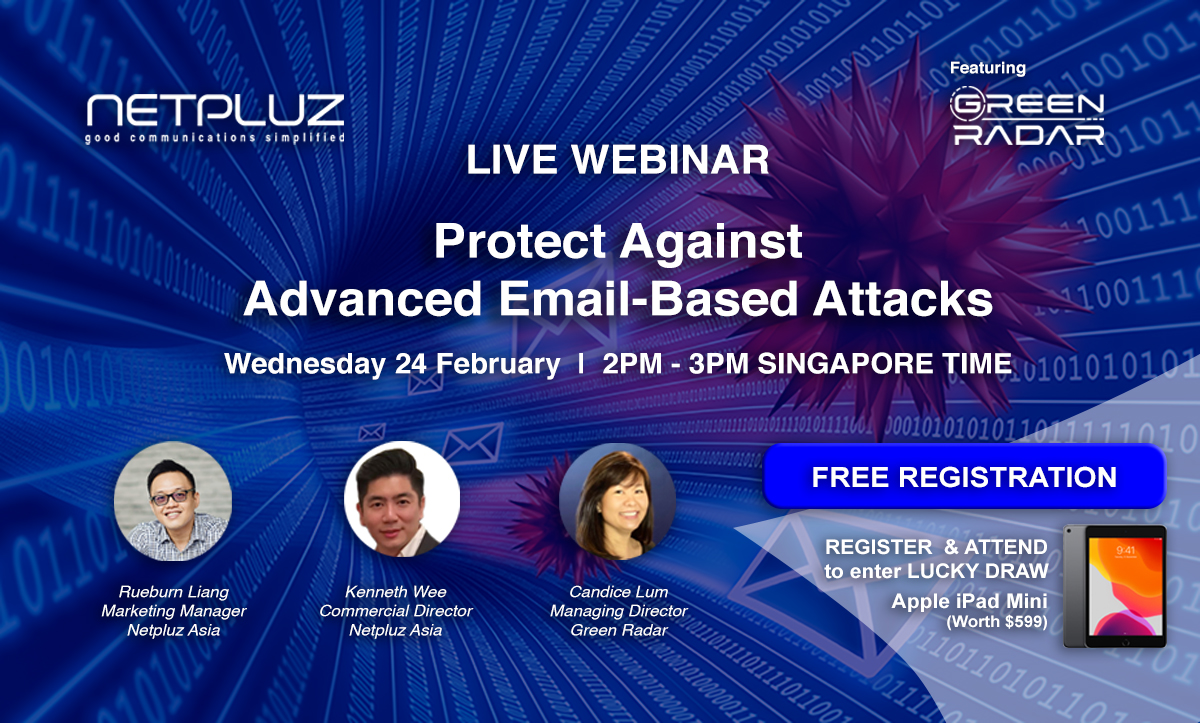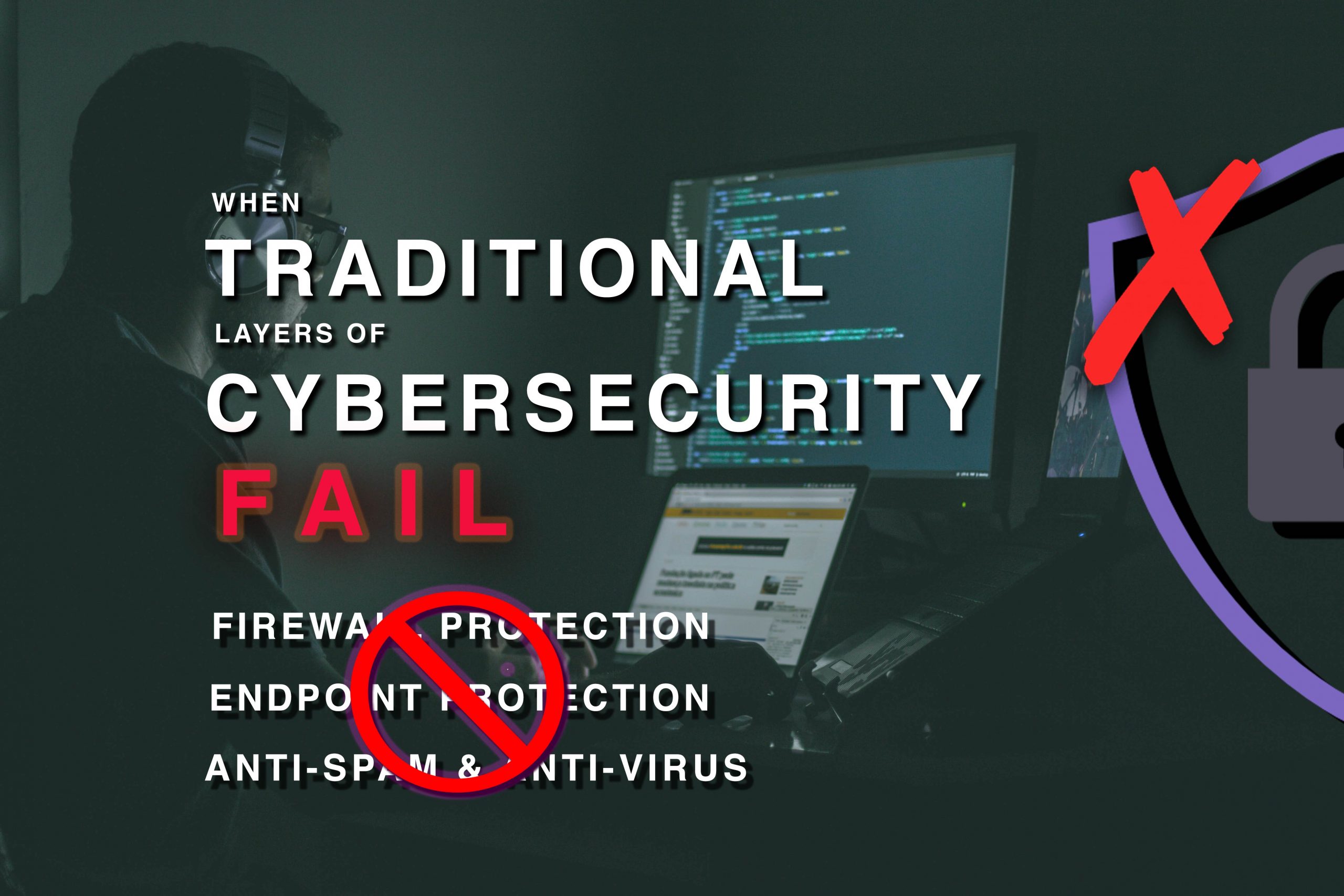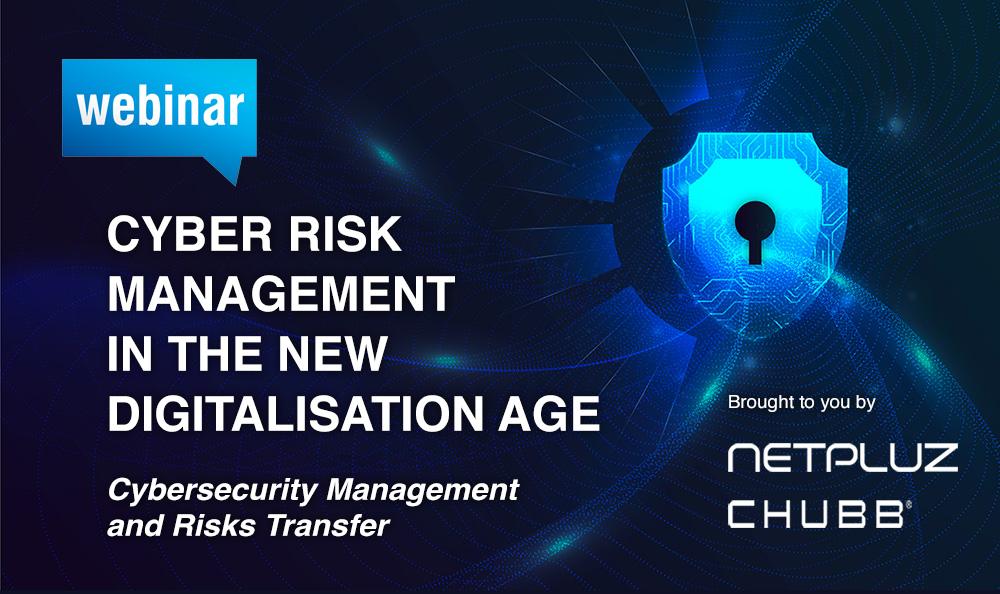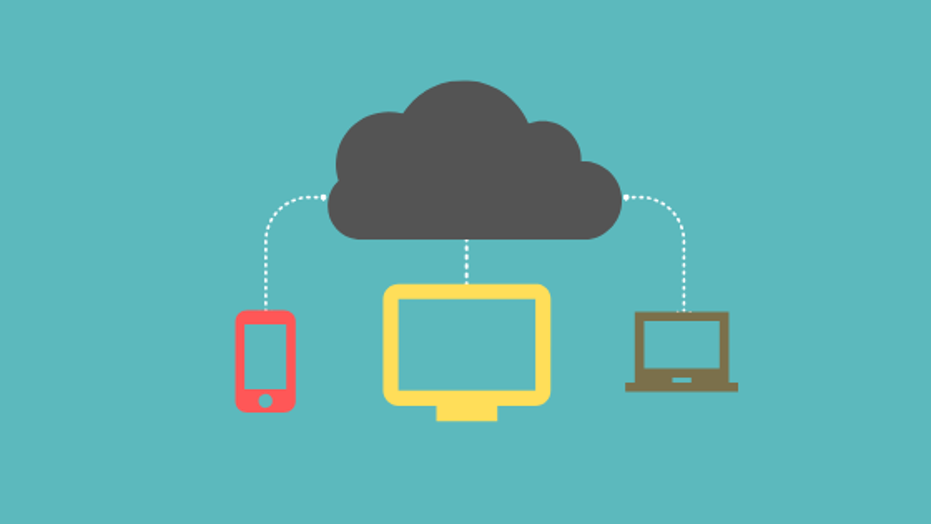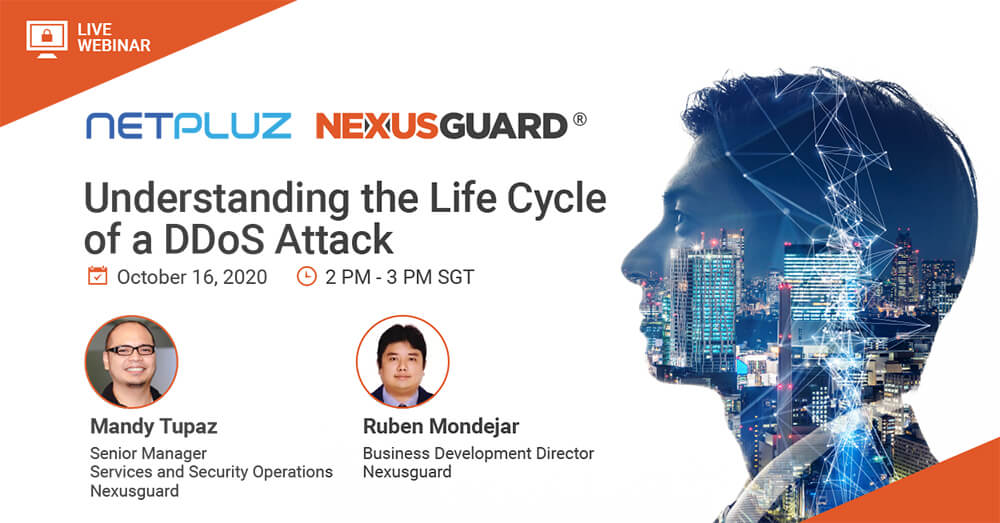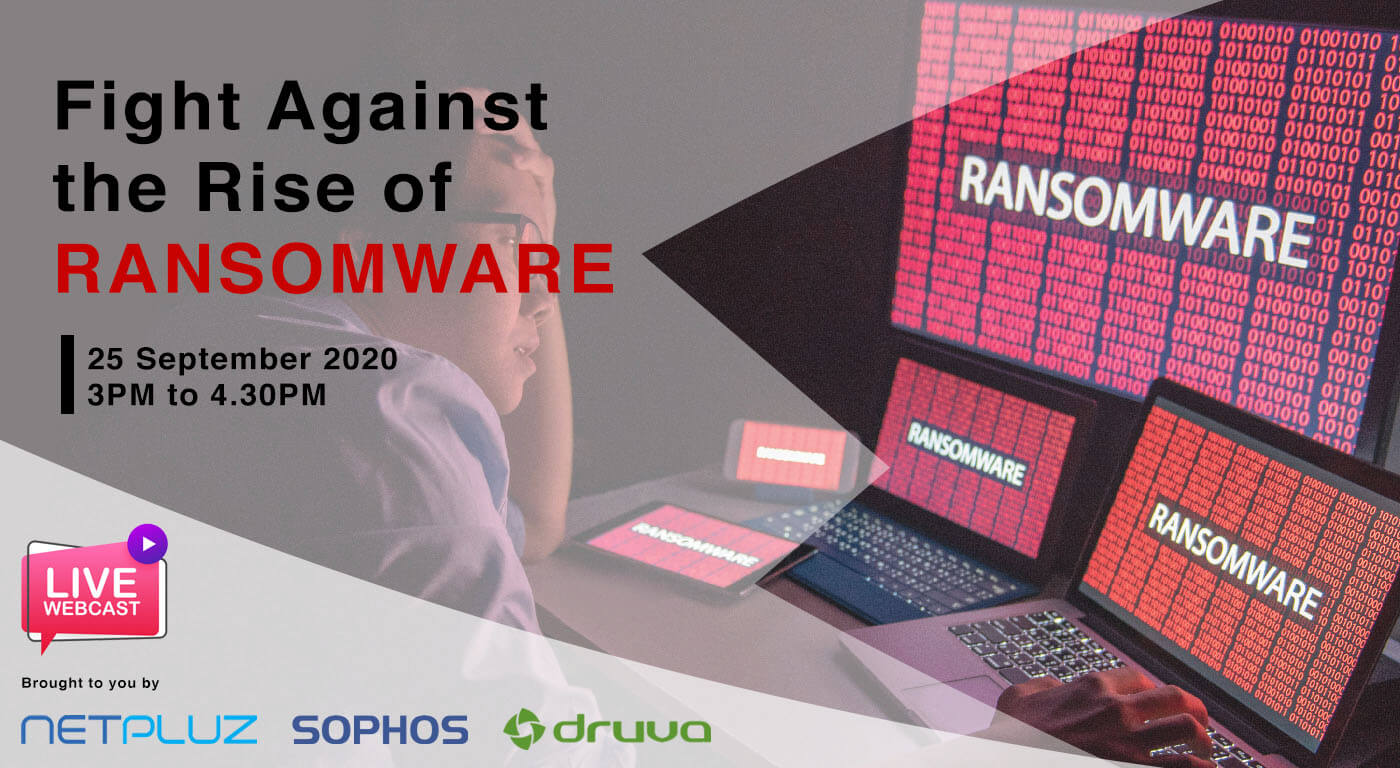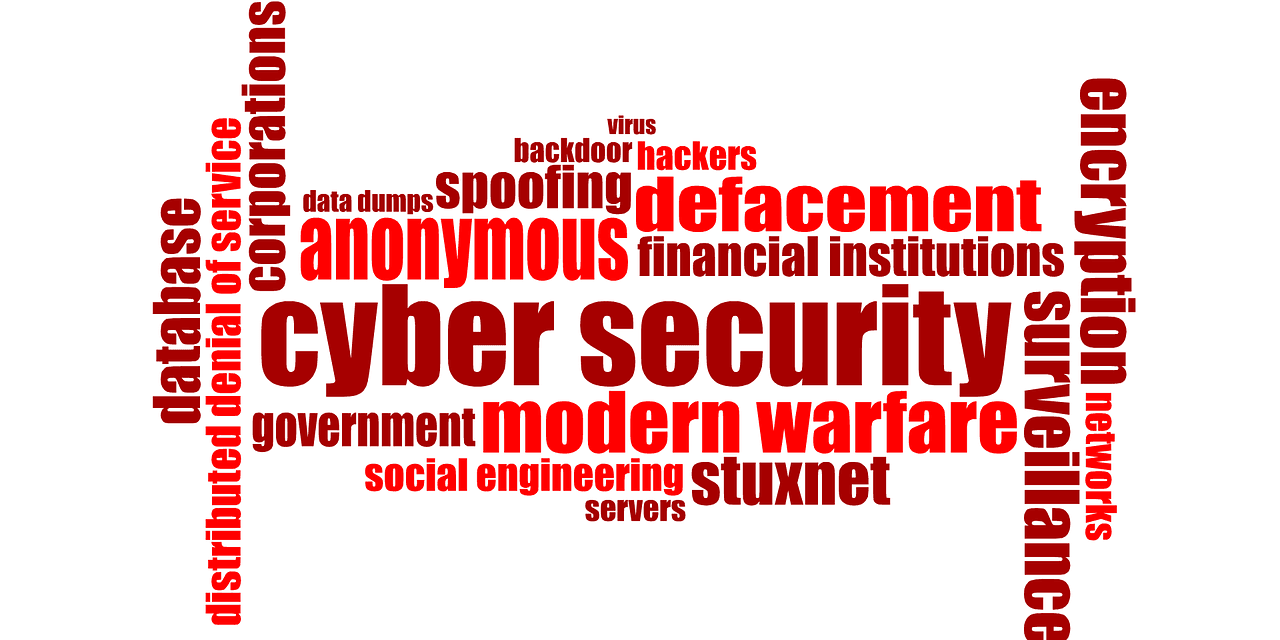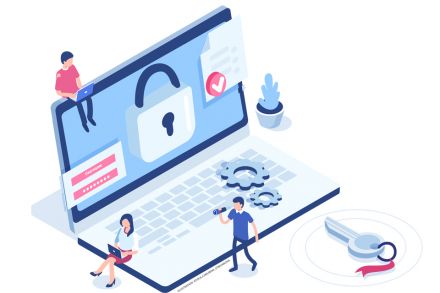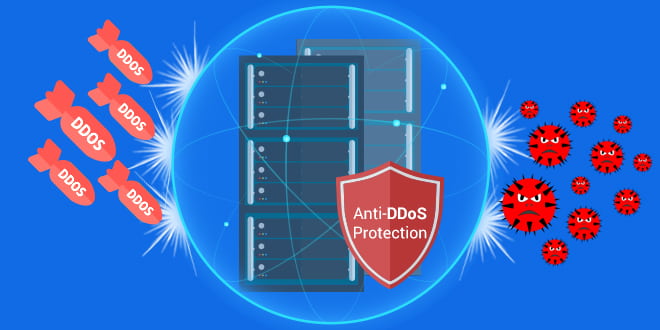It never rains but it pours. Your data just got stolen, and the next thing you know, you’re facing a $16,000 fine. That’s why it’s crucial that data breaches do not happen and you should be aware of how you can protect your company with cyber security hand-in-hand with Personal Data Protection Act (PDPA) Compliance.
A data breach is a security incident in which information is accessed without authorisation. It usually happens when there is an unauthorised entry point into an organisation’s database that allows hackers to access customer data such as passwords, credit card numbers, banking information and other sensitive information.
Data breaches can hurt businesses and consumers in a variety of ways. They are a costly expense that can damage lives and reputation.1
What is the Personal Data Protection Act (PDPA)?
The PDPA is an act enforced by the Personal Data Protection Commission (PDPC). It is a data protection law that comprises various rules governing the collection, use, disclosure and care of personal data. It identifies both the rights of individuals to protect their personal data and the needs of organizations to collect, use or disclose personal data.2
10 questions to ponder if your company complies with the PDPA3
- Do you have a Data Protection Officer?
All organisations must appoint at least one person as the Data Protection Officer (DPO).
The DPO function is management’s responsibility and, ideally, the appointed DPO should be part of the management team. The operational DPO functions, however, may be delegated to one or a few employees, or outsourced to a service provider (Data Protection Service Provider).
Once you have decided on the person(s) to appoint, it is important to brief him/her on his/her roles and responsibilities. Next step is to inform all your staff on who the DPO is so that they can forward all PDPA-related queries and feedback to him/her.
- Do you notify the customer of your purpose in collecting, using or disclosing his/her personal data?
The customer should be fully aware of what and why their personal data is collected/used/disclosed for.
- Do you seek the customer’s consent when collecting, using or disclosing his/her personal data?
The customer should give their consent when their data is used, collected or disclosed.
- Do you allow the customer to withdraw consent at any time when collecting, using or disclosing his/her personal data?
The customer should be allowed to withdraw consent at any time regarding their Personal data.
- Do you have an adequate response (within 30 days) when individuals ask about how their personal data has been used?
If you are unable to provide it within 30 days, you must inform the individual within 30 days and let him/her know when you can respond.
- Do you allow the correction of Personal data?
Are customers allowed to correct or update their data maintained by the organisation?
- Are security arrangements in place to protect all personal data under your organisation?
Establish security arrangements to protect personal data under your organisation. This is to prevent unauthorised access, collection, use or disclosure of the data and other similar risks.
- Did you dispose of personal data that is no longer needed?
Stop holding on to personal data when you no longer have any business or legal use for it.
- Did you check the Do Not Call Registry before doing telemarketing?
If you conduct telemarketing to subscribers or users of Singapore telephone numbers, you will need to submit the telephone numbers on your telemarketing list for checks against the Do Not Call (DNC) Registry, unless the subscriber or user has given his/her clear and unambiguous consent to receive such messages.
- Communicate your data protection policies, practices and processes
Provide the business contact information of your DPO so that your customers can contact him/her for PDPA-related queries or complaints
How does Cyber Security help to mitigate the risk of data breach?
A data breach is very much avoidable with the correct measures in place.
It is not wise for organisations to skimp on cyber security expenses. In this age when data is so valuable, a breach has certain irreversible consequences.
Ways to mitigate the risk of data breach with cyber security
- Critical Infrastructure Security
Cyber security helps in securing your IT infrastructure as a whole which secures any mission critical applications that cannot afford any downtime.
Common attacks such as DDoS, can be prevented with adequate firewall in place to detect any incoming attacks through a mitigation facility. Through this method, customers’ IP addresses are masked with a Virtual IP so that all data traffic will be redirected before it reaches their network. 4
- IP Address
Usually, an organisation may have a server with an externally facing IP, exposed to the internet, within a DMZ. These servers have static IP addresses which are accessible from anywhere with an Internet connection.
It is consequential for organisations to ensure this public address range is frequently scanned for exploits and weaknesses to ensure that crucial data is not leaked.
One method to mitigate this is to use application layer defenses, consult a network firewall provider that has strong application layer protection. A firewall should have the ability to inspect the content of traffic and block malicious requests. Another method of mitigation can be by having a dynamic IP address that changes over time and is different each time you connect to the internet. Dynamic IP address reduces the chance of IP address hacking as it is changing over time and is difficult for hackers to decode. 5
- Cloud Services
Is the convenience of the Internet still as enticing after knowing the threats? Fret not! Put in place your cloud security to mitigate the risk of data breach when storing your data in the cloud!
Insufficient due diligence will cost you greatly, hire the right people to monitor what’s going on in your workspaces can help you avoid or hold back data breaches or you can consult a unified cloud management platform. 6
Conclusion
All in all, cyber threats are imminent and impending, the PDPA is a very important legislature in data handling and exchange. Hackers will continue to mine the cyberspace for any information that they can exploit financially and it is important to be ready when the push comes to shove.
Netpluz can be your one stop solution for all cyber security services that your company might require. Our managed cyber security services include cloud based simple and cost effective solution to mitigate and protect against any external threats, such as D-DOS attacks, secures any backend network and mission critical applications that cannot afford any downtime.
Please feel free to book an appointment by submitting your information here for a free consultation.
Author: Ong Wei Zhao
References
2 https://www.pdpc.gov.sg/Legislation-and-Guidelines/Personal-Data-Protection-Act-Overview
4 https://www.cloudflare.com/learning/ddos/what-is-a-ddos-attack/
5 https://www.sciencedirect.com/topics/computer-science/internal-server
6 https://medium.com/swlh/7-ways-to-secure-your-office-365-from-data-breach-86537dcb70db
Data Breach – When Traditional Layers Of Cybersecurity Fail
“How Prepared Are You?”
What happens when your traditional layers of cybersecurity fail? How can you stay ahead of the game? Nobody could ever be prepared enough when it comes to cybersecurity. The best that one can do is to expect the worst and be ready to receive the impact when it comes.
The Age of Digitalisation brought much success to many businesses, be it SMEs or big corporations. However, with these success stories, an alarming number of cyber attacks are reported in recent years. These cyber attacks hinder businesses and greatly affect many aspects such as credibility, work efficiency and most importantly loss in revenue. Cyber attacks can come in various forms, examples include malware, phishing emails and more which can lead to possible data breaches.
According to a 2019 survey by endpoint security firm, Carbon Black, 96% of the surveyed Singapore firms have had data breaches due to cyber attacks. The results are worrying as data breaches can impact a business financially to a huge extent. These attacks are estimated to cost Singaporean businesses $1.7million per breach, according to Channel Asia. These numbers can easily cripple and crumble many SMEs that are not financially ready to receive such an impact. In Singapore and Malaysia, SMEs contribute to 40% each for their nation’s GDP, translating that the importance of SMEs in these countries.
With the recent changes to the Personal Data Protection Act (PDPA) in Singapore, businesses that are found guilty of a data breach are now expected to pay a heftier fine based on their annual company turnover. This is to ensure a safer environment in the digitised world by strengthening data protection standards. From SMEs to big corporations, there is always much valuable and personal data that can be potentially compromised. The data may include customer’s personal data as well as employee’s personal data such as NRIC, Date of Birth, residential addresses and bank information. In recent news, Eatigo reported a data breach with potentially 2.8 million accounts illegally accessed. Similarly, Lazada, reported a data breach from their recent acquisition, RedMart. It was reported that personal information from 1.1million RedMart accounts was stolen as a result of the data breach.
If you think that SMEs are safe from cyber attacks, you are wrong. In fact, 43% of cyber attacks were reportedly targeted at SMEs. In 2019, Homegrown fashion label, Love, Bonito reported a data breach with their users’ information compromised. SMEs may not be able to cushion such an impact financially compared to big corporations with deep pockets, especially with the new amendment to the PDPA. For many SMEs, it could mean the closure of businesses. However, there are certain measures that SMEs could implement to prevent being caught in such a situation.
Hire an external consultant
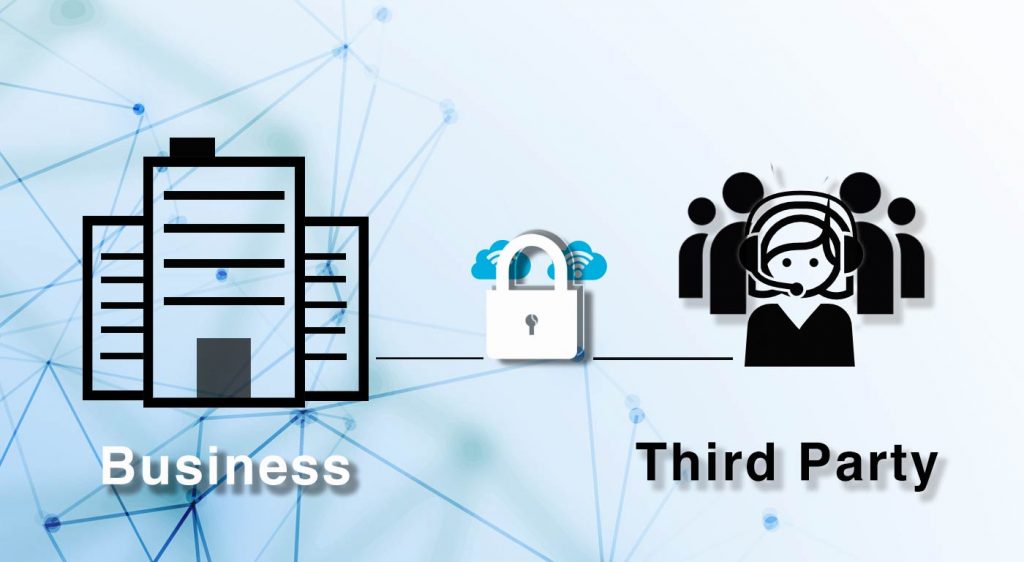
Businesses should always be looking towards increasing productivity and efficiency that translates to revenue. This is why hiring an external consultant or a service provider to manage your data and cybersecurity needs is vital. Businesses shouldn’t be worrying about scouting for cybersecurity talents. Not only are they much more costly, it is also more feasible to let a team of experts who specialise in specific areas of expertise, manage your data and security solutions. In addition, they are well equipped with knowledge and experience which can definitely bring much value in the event of a cyber attack. Hence, there is a business case for engaging MSPs to handle cybersecurity as it is more cost efficient.
Let the experts manage and mitigate cyber risks while your business focus on the main goal of profiting.
Employee Training
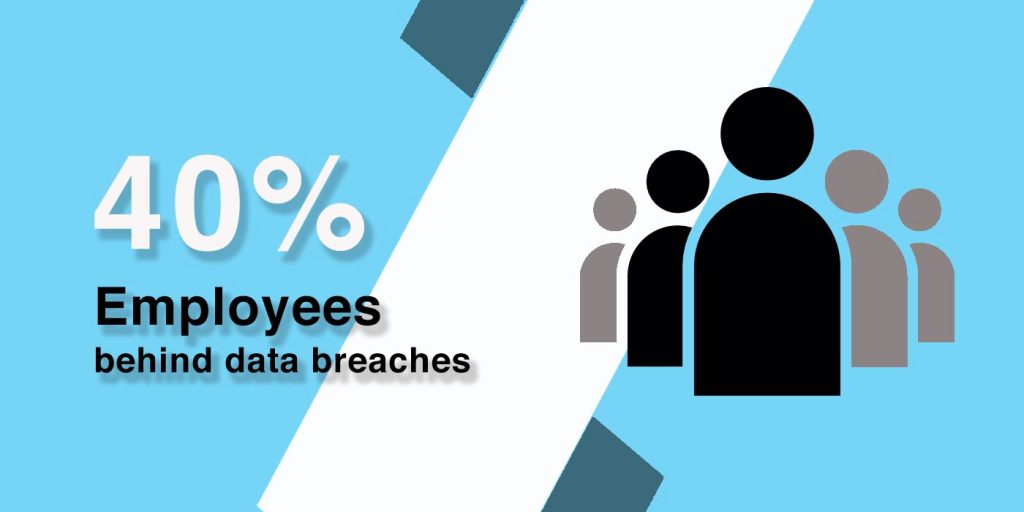
You can be well protected in every aspect, thinking there are no loopholes. However, research has shown that more often than not employees unknowingly aid in cyber attacks leading to data breaches. According to Security Magazine, employees are behind 4 in 10 data breaches. Phishing emails and file-based malware are among a few common deceits that employees usually fall for. This suggests a strong need for businesses to provide frequent training on cybersecurity for their employees as they are the weakest link.
The Failsafe
The big question: WHAT IF? When all else fails, what can businesses rely on? Most businesses may already have security measures implemented to prevent cyber attacks however, in the worst case scenario, a data breach might still happen.
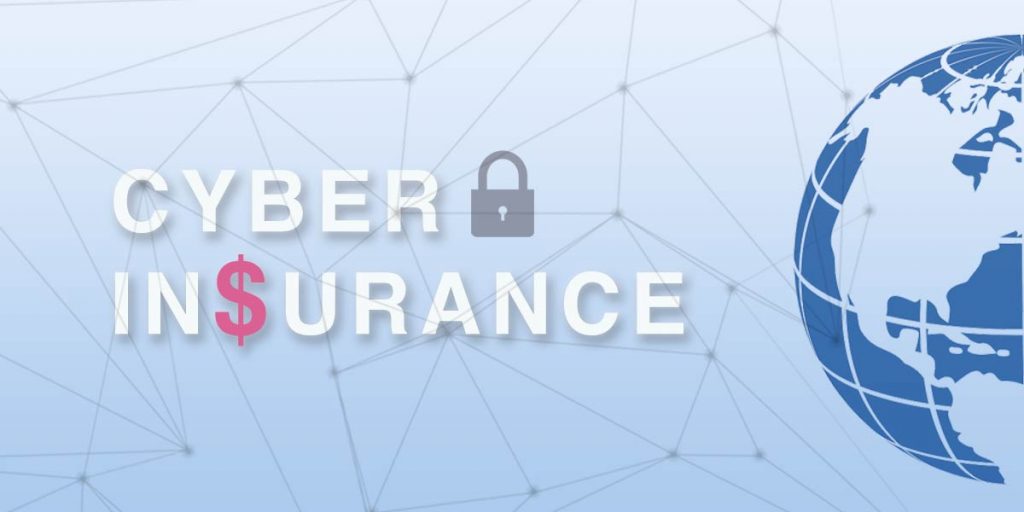
Cyber insurance helps businesses cushion their financial impact in the case of a cyber attack and data breach. For example, during an email phishing incident, cyber insurance covers the entire cost of the forensics process which is a huge financial setback for businesses if not insured. In ransomware incidents, bitcoins are usually the currency requested to be paid in. However, if insured, the ransom fee would be covered in full. SMEs can easily crumble if caught in situations like these, paying a huge sum of money for forensics and bitcoins.
Where and How to Get Covered?
Netpluz Asia is the first Managed Communications Service Provider (MSP) to introduce cyber insurance into our existing wide array of comprehensive data, voice and video solutions. As a one-stop MSP with 24/7 support, Netpluz Asia can help spur your businesses on to greater heights while making the journey smooth and secure by the delivery of high quality services.
An upcoming webinar by Netpluz Asia featuring Commercial Director, Kenneth Wee and guest speaker from Chubb, Elsa Xu, Financial Lines Manager, aims to highlight the topic of cybersecurity management, risk transfer and how insurance comes into play.
To find out more about the webinar and cyber insurance click here
References:
Baharudin, Hariz. “Love, Bonito Customers’ Data Breached, Credit Card Details Exposed, Watchdog Investigating.” The Straits Times, 13 Dec. 2019, www.straitstimes.com/tech/love-bonito-customers-data-breached-credit-card-details-exposed-watchdog-investigating.
“Carbon Black Reveals 96 Percent of Firms in Singapore Suffer Data Breaches.” CISO MAG | Cyber Security Magazine, 3 Oct. 2019, cisomag.eccouncil.org/around-96-percent-of-singapore-businesses-suffer-data-breach-survey/#:~:text=Around%2096%20percent%20of%20Singapore%20Businesses%20Suffer%20Data%20Breach%3A%20Survey,-By&text=According%20to%20the%20research%20findings,an%20increase%20in%20attack%20volumes.
“Eatigo Reports Data Breach, Personal Data from Customer Accounts Listed for Sale Online.” CNA, www.channelnewsasia.com/news/singapore/eatigo-data-breach-personal-information-millions-account-13425082.
Henderson, James. “Security Attacks Cost Singaporean Businesses $1.7M per Breach.” Channel Asia, www.channelasia.tech/article/670400/security-attacks-cost-singaporean-businesses-1-7m-per-breach/.
Kapur, Ricky. “Cybersecurity for Small-and-Medium Enterprises in Asia Pacific.” Microsoft Stories Asia, 29 Oct. 2020, news.microsoft.com/apac/2020/10/29/cybersecurity-for-small-and-medium-enterprises-in-asia-pacific/.
“Lazada Suffers Data Breach; Personal Information from 1.1 Million RedMart Accounts for Sale Online.” TODAYonline, www.todayonline.com/singapore/lazada-suffers-data-breach-personal-information-11-million-redmart-accounts-sale-online.
“Microsoft: Digital Transformation Doesn’t Make SMEs Immune to Cyber Threats.” Securitybrief.Asia, securitybrief.asia/story/microsoft-digital-transformation-doesn-t-make-smes-immune-to-cyber-threats.
“Stressed Employees behind 4 in 10 Data Breaches.” Www.Securitymagazine.com, www.securitymagazine.com/articles/93921-stressed-employees-behind-4-in-10-data-breaches.
Wong, Lester. “Parliament: Proposed Changes to PDPA Include Stiffer Fines for Data Breaches, Mandatory Notification When They Occur.” The Straits Times, 5 Oct. 2020, www.straitstimes.com/politics/parliament-proposed-changes-in-law-include-stiffer-fines-for-data-breaches-mandatory.
Author: Sebastian Toh
PDPA Compliance – Is Your Corporation’s Data Free From Cyber Threats Such As Data Breaching?
Cyber activities are becoming more common than you think. According to a survey report released by the Cyber Security Agency of Singapore (CSA), there has been a huge increase in cyber threats such as data breach.
Businesses in Singapore suffered losses of around S$58 million in 2018, representing an increase of about 31 percent from 20171.
With the risk of high loss due to cyber threats, this blog article aims to share some simple and cost-effective ways to keep your business safe in the upcoming year.
To begin, let’s first have a basic understanding of the possible cybercrime and its impact.
What is data breach?
In today’s internet world, data breaches are becoming more common for businesses, regardless of the organisation’s size and complexity. Data breach is a security vulnerability where confidential data or sensitive information is released to untrusted websites or misused by cybercriminals. This means that data is at risk of being stolen, transmitted or viewed by unauthorised people outside of your company, which can also be known as a data leak.

How does data breach occur?
Some business owners may think that having a single firewall is sufficient enough to deal with a cyberattack. This mindset increases the attractiveness of the cybercrime industry and provides more targets for attackers to make their profit. A data breach can happen to an organisation in multiple ways such as
Employee Focus attacks: Cybercriminals could send malicious emails that look valid and real to simply request the targeted employees to send in the required details. Employees who have been deceived will unknowingly leak important information that provides hackers with access to all your organisation’s data.
Alternatively, it could be due to sharing of private information to the wrong person. For instance, attaching an important document that contains customer details to someone outside of your organisation who does not have any permission or right to view, and the file can be read by them without any further authentication, like a password.
Malware attack: The data that your organisation owns is very attractive to cybercriminals. To obtain those valuable data, cybercriminals could use malware to hack into your system. One of those is known as Ransomware, which is a malicious program used to acquire a significant amount of data and likely to perform encryption in a single attack. With that, the cybercriminal is able to demand and threaten for payment from the victim in exchange for a decryption key.
Outcome Of Data Breach
Upon data breach, there are many lethal results that could lead to termination of business operation, temporarily or permanently. Data breaches can damage both business and consumers in terms of reputation, which is costly and timely to be repaired. Moreover, businesses may face additional damages in the form of fines or penalties. These consequences may vary due to the type of data breaches and violation of the Personal Data Protection Act.
What is the Personal Data Protection Act (PDPA)?
PDPA is a law that aims to protect all relevant information of an individual such as NRIC, bank account details, among other information against any organisation that is likely to have revealed, collected and used it, despite the credibility of the information. With PDPA, this means that all corporations in Singapore will have to follow a set of baseline standards when managing possession of all individual’s data, even by the firm’s own employees.
How is the PDPA enforced?
The Personal Data Protection Commission (PDPC) has been established to manage and enforce PDPA. The PDPC will determine if a business is not in compliance with PDPA, and the particular company may receive instructions and consequences, such as terminating any collection, use, and disclosure of data in business operations. The company would also be expected to pay fines not exceeding S$1 million.
Protecting against data breach with cybersecurity
With the growth of the internet, there are different security needs such as the application, cloud, mobile, network and endpoint securities. Also, data loss prevention, identify and access management. Cybersecurity is the general IT term to cover different defence remedies and it will allow your corporate to secure the system against any cyberattacks that may lead to data breaches.
Cybersecurity Practices To Mitigate The Risk of Data Breach
These are some easy and effective cybersecurity methods that can ensure that all vulnerable devices, applications, networks, and data in your company’s holding are being protected against any threats.
Secure All Network and Device
This can be done by first installing security software that includes anti-virus and anti-spam filters, which can help your business reduce the possibility of falling for phishing emails and mitigate malware infection.
Also, a firewall could be applied together to track the in and out traffic between all your company computers and the internet. With a firewall in place, the business internal network can be further secured.
Secure With Encryption
Always make sure that your data in files are encrypted in secret code or password when sharing on to the internet. This helps to reduce the risk of data being stolen or destructed online.
Enforce Cybersecurity Policies
By stating out the relevant rules and regulations, your employees can be educated on security issues and things to take note of when they are visiting internet sites or emails.
Conclusion
The right cybersecurity is needed in order to mitigate your corporate’s sensitive data such as financial information, trade secrets or intellectual property of the customers or users. With cyber attackers and hackers becoming more prominent and creative it is difficult to acquire an effective solution. Not to worry! At Netpluz, we have partnered with leading cybersecurity vendors such as Nexusguard, Sophos, Druva and many more that can provide a variety of cybersecurity solutions that can help your company reduce the negative impacts of data breaching and at the same time save cost.
Click here to find out more about ways to defend your data, or email us to arrange for an appointment with our experienced manager, and we will provide ways for you to become more secure.
Author: Ada Foo Jiaxin
References
1 CISOMAG. “Around 6,200 Cyber-Attacks Reported in Singapore Last Year: CSA.” CISO MAG | Cyber Security Magazine, 20 June 2019, www.cisomag.com/around-6200-cyber-attacks-reported-in-singapore-last-year-csa/
Irwin, Luke. “The 6 Most Common Ways Data Breaches Occur – IT Governance Blog.” IT Governance Blog, 11 Mar. 2019, www.itgovernance.eu/blog/en/the-6-most-common-ways-data-breaches-occur.
“What Is Cyber Security Threat Mitigation? Webopedia Definition.” Webopedia.Com, 2019, www.webopedia.com/TERM/C/cyber-security-threat-mitigation.html#:~:targetText=Cyber%20security%20threat%20mitigation%20refers,when%20security%20attacks%20do%20happen.
What is Cybersecurity (Cyber Security)? Everything You Need to Know. “What Is Cybersecurity (Cyber Security)? Everything You Need to Know.” SearchSecurity, 2019,
“How to Protect Your Business from Cyber Threats | Business.Gov.Au.” Business.Gov.Au, 15 Oct. 2019, www.business.gov.au/Risk-management/Cyber-security/How-to-protect-your-business-from-cyber-threats.
What happened recently with so much Data Breaches news coverage?
One of the key challenges for organisations today is how to safeguard their information systems and digital infrastructure from attacks by malicious hackers and cybercriminals. Current concerns for most companies are often related to data breaches, with so much media coverage focusing on recent cases.
In light of recent data breaches discovered on Singtel and Ninja Van, Personal Data Protection Commission (PDPC) mentioned:
“Despite having received professional advice to take precautions against such vulnerabilities, the organisation omitted to conduct a full code review…and hence failed to discover (the vulnerability) that was exploited in this case.”
No matter how certain organisations are about their defences, there are always risks to their security because of frequent changes and updates made to their digital infrastructure.
Due to these issues, vulnerability assessment and penetration testing (VAPT) come in place as a solution to identify the unknown vulnerabilities and set immediate remediation to mitigate cybersecurity risk for the company.
According to PDPC, eight organisations were found to be in breach of the Personal Data Protection Act (PDPA).
- Ninja Logistics for failing to put in place reasonable security arrangements to protect customers’ data in relation to a tracking function on the company’s website, allowing the data to be accessed publicly.
- EU Holidays, penalty of $15,000, for not protecting customers’ personal data and not having written policies and practices to comply with the PDPA.
- Marshall Cavendish ($40,000), Singtel ($25,000) and SearchAsia Consulting ($7,000); and a warning issued to another two – Tan Tock Seng Hospital and CampVision.
- Directions were also imposed on iClick Media for breaching the Accountability Obligation.
Is Your company ready for Vulnerability Assessment & Penetration Testing (VAPT)?
Vulnerability Assessment & Penetration Testing (VAPT) is necessary to spot your vulnerability. VAPT result shall deliver quality assessment through the eyes of both a hacker and an experienced and certified security expert to discover where you can improve your security posture.
The findings (vulnerabilities) would be delivered as reports that shall be used to effectively remediate any of the vulnerabilities and answer these following questions:
- How vulnerable are you from the internet or intranet?
- What are the exploitable vulnerabilities?
- Are the operating system patches current?
- Do you have unnecessary service running?
“Knowing your vulnerability and the way in which the attackers could exploit them are one of the greatest insights you can get in improving your security program.”
Want to know how we can help you discover vulnerabilities through VAPT?
Reference
Singtel fined $25,000 and Ninja Van $90,000 for data breaches, The Strait Times, Nov 5, 2019. – https://www.straitstimes.com/business/companies-markets/singtel-fined-25000-and-ninja-van-90000-for-data-breaches
New Commission’s Decisions on 4 November 2019, PDPC, Nov 4, 2019 – https://www.pdpc.gov.sg/pdpc/news/latest-updates/2019/11/new-commissions-decisions-on-4-november-2019




